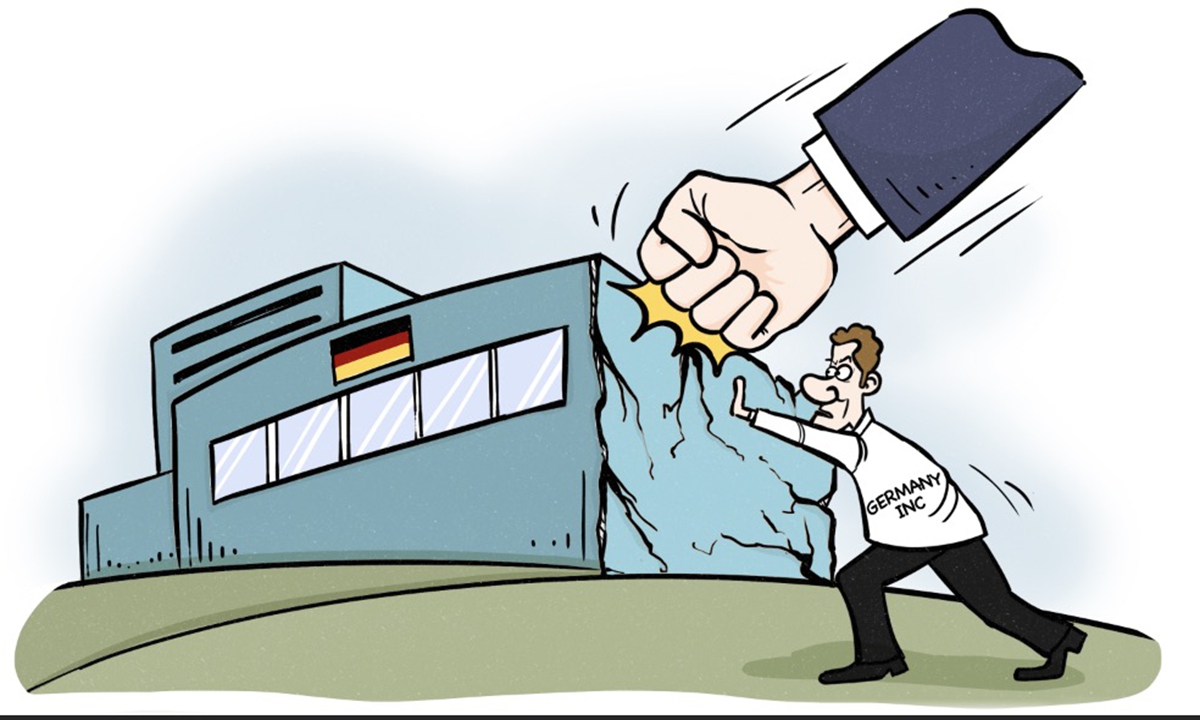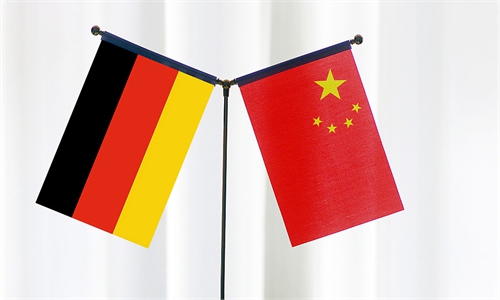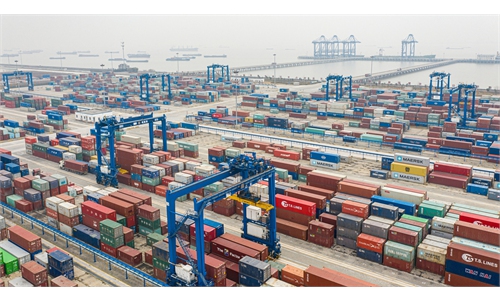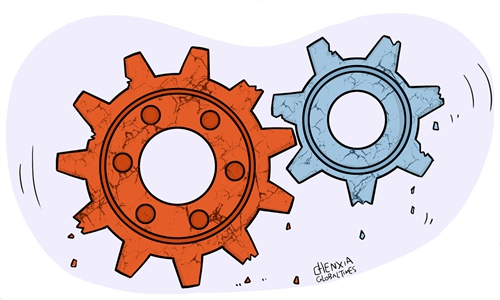
Illusration: Chen Xia/Global Times
German Economy Minister Robert Habeck is working to make some changes in Germany's China policy, and whether China can still be viewed as "a partner" is now under review, Radio France Internationale (RFI)'s Chinese edition reported on Tuesday, citing a report from German magazine Focus.RFI's report, although its veracity remains unclear, came several months after Habeck was quoted as saying in May that Germany is changing the way it deals with China and will give higher priority for so-called "human rights issues." Clearly, Habeck tends to adopt a tough stance on China, but the economic minister may have overlooked a fact: his remarks heap further pressure on Germany's already faltering economy and that isn't what an economy minister should do.
Some German politicians now face a self-imagined dilemma. China is the biggest trade partner of Germany, so if Berlin adopts a tough, or more precisely a hostile stance against China, it will likely pose a risk of damaging bilateral trade and investment. Yet if Germany gives priority to its own economic interests instead of politics, it will face scrutiny from radical anti-China politicians in the country and other Western nations.
A simple solution to this dilemma would be to avoid politicizing economic and trade issues. Germany is facing stiff headwinds that are darkening its economic outlook. According to Bloomberg, confidence in Germany's business outlook fell in August as soaring inflation and fears about a possible recession intensified. What's worse, Germany posted a trade deficit for the first time in more than three decades in May, underlining a stalled attempt to develop its export-oriented economy.
The Deutsche Bundesbank, Germany's central bank, has slashed its forecast for the nation's GDP growth from 4.2 percent in December to just 1.9 percent in June, according to Xinhua News Agency.
Although some politicians try to politicize economic issues and persuade multinationals to quite the Chinese market, many German enterprises don't want to make changes their long-standing business decisions.
German carmaker Volkswagen's new CEO Oliver Blume said recently that he wants to keep the company's plant in Northwest China's Xinjiang region, according to media reports. The carmaker has recently encountered a sudden increase of political pressure in Germany and the US-led West over the plant it opened in Xinjiang nine years ago.
Stefan Wolf, president of Gesamtmetall, the federation of German employers' associations in the metal and electrical engineering industries, said Germany can hardly reduce its "economic dependence" on China in the short term, and it would "paralyze German industries," if the nation launched an "economic war" with China, according to the RFI report.
Complementary advantages underpin China-Germany cooperation, which is mutually beneficial in essence and directly benefits the two peoples. Exports and imports between China and Germany were up 22.5 percent year-on-year and climbed to $235 billion in 2021, data from Chinese customs showed. The two nations need to maintain a good momentum of development of their trade relations amid a global economic downturn, and the trend should not be affected by geopolitical factors.
This year marks the 50th anniversary of the establishment of diplomatic relations between China and Germany. Chinese State Councilor and Foreign Minister Wang Yi met with German Foreign Minister Annalena Baerbock in July and said that China is willing to sum up the experience with Germany, and plan for cooperation in the next 50 years, so as to inject new momentum into the development of bilateral relations.
Decoupling is a dangerous game for the German economy. German politicians should take seriously the stern warnings from the German business community, stop politicizing economic issues and cherish mutually beneficial economic ties with China. The German economy will lose steam without China as a partner.
The author is a reporter with the Global Times. bizopinion@globaltimes.com.cn



